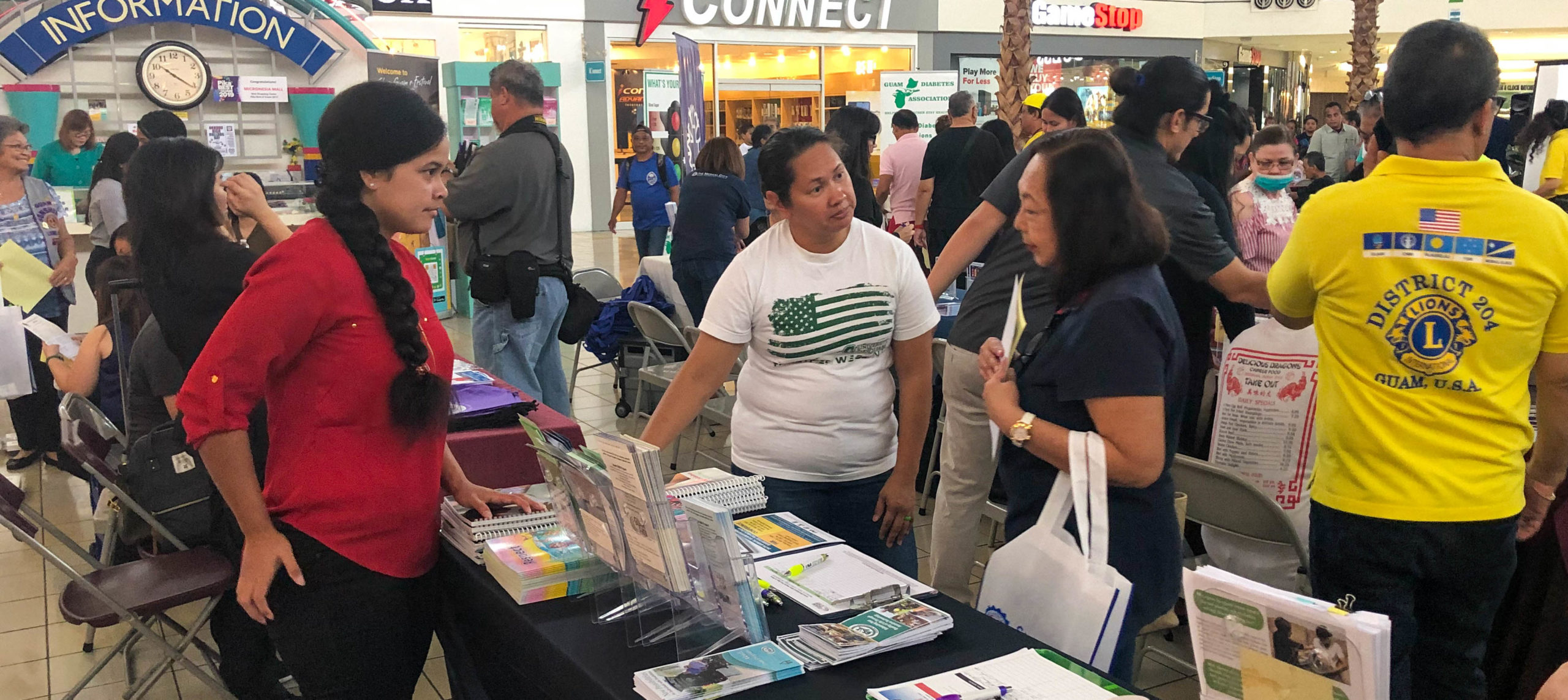After fully engaging in an “epic marathon,” Project EPICS scholars are “quickly approaching the finish line!” Currently, midway into the planned final year of a five-year project, the “Educating Pacific Island Clinicians in Speech Pathology” project, also known as “Project EPICS,” is in “the last lap” of this amazing endurance event. Eighteen student “scholars” are entering their last few months of the project whose mission is to produce graduate-level speech language pathologists to serve and provide much-needed speech services to the children of Guam and the Pacific region. This project is funded through a U.S. Department of Education, Office of Special Education Programs personnel preparation awarded to San José State University (SJSU), in partnership with Guam CEDDERS. The Spring 2020 semester is packed with activities including completing two online courses and finishing up the required number of practicum hours in school and hospital settings. In April, the scholars can opt to participate in an online “Praxis Preparation Workshop” with Dr. Kay Payne, CCC-SLP, a nationally recognized expert on Praxis prep and the author of numerous Praxis Preparation resources. Similar to the national Praxis examination for teacher certification, the Praxis test for Speech Language Pathologists (SLPs) is a requirement for national certification for SLPs. Scholars have the option as to when to sit for this examination. The last SJSU program requirement for all the EPICS scholars is the Comprehensive Examination, fondly referred to as “Comps.” This is scheduled for May 2, 2020. If you may recall, the group of 18 scholars was divided into two cohorts for the purpose of completing an externship in the San José, California area at various sites in collaboration with SJSU. Nine scholars in Cohort 1 completed this externship in August 2019. The remaining nine who comprise Cohort 2 are scheduled to complete their externship this summer, ending in early August 2020. Upon this group’s return, the Project will hold a much-anticipated graduation ceremony to celebrate the incredible effort of these scholars in completing this “marathon” program. As of this writing, however, things are looking like Cohort 2’s externship plans will need to change, given the situation with the COVID 19 pandemic. And sadly, graduation may have to be postponed as well. Stay tuned for the next issue of I Tellai for the update.

Clinical Practicum Supervisor, pose with the EPICS scholars during the end of the classes celebration on August 3. (Second Row left-right) Camille Onglao, Bobbie Obillo,
Dianne Sapida, Tricia Taitano, Liahlanni Cruz, Megan Merfalen, Lisa Eclavea, and Jasmin Advani. (Back Row left-right) Aileen Serrano, Catherine Ruszala, Lillian Reyes,
Cassandra Dimla, Christina Cole, Gabriella Duenas, Ignacio Dela Cruz, Tatiana Perez, Meagan Terlaje, John Payne, and JJ Mendiola.












































